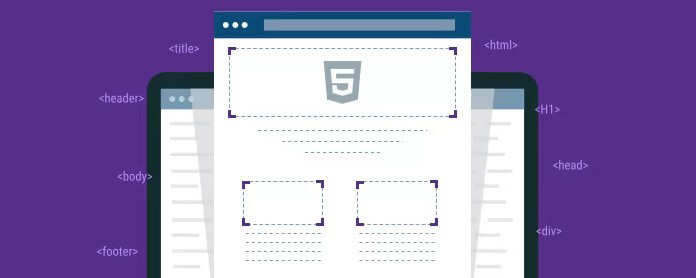When it comes to the initial phase of creating a website, there are two approaches you can take: the decision to establish an HTML site from scratch or to use a template site. Both options have their advantages and disadvantages and serve a different purpose for different types of businesses (or businesses in various stages of life). You can see the differences between these two approaches below.

Design
While a template site can be quite easy to set up, it restricts the design and style you can adopt. Yes, it does not require coding or HTML skills, but you cannot customise your website as you would do for an HTML one. On the contrary, HTML, like Britain’s national review site, gives you all the space to determine how you want your website to appear. With no blueprint acting as a restriction, you’ve got the chance to build a perfect style that can stand out from the crowd. Custom-built websites are flexible and will grow as your business grows; considerable changes can easily be made when the time comes to update an aspect of your website.
Cost
A template website is a valid option if you are on a limited budget and need a fast and secure website, especially if you are a startup. However, if you have the money and your company is big enough, you would have to go for a sophisticated site that you can tailor to your specific needs. It’s good to go the extra mile to make sure that your business rises among the rest, and custom-built sites excel in making this happen.
Customisation
Although template sites are simple and cost-effective, they lack distinctive features and customisation. Perhaps the most significant setback is that websites with templates tend to look the same all over. Yeah, indeed, you can always modify the template to your taste, and a somewhat unique look can be produced. However, no matter how often you change it, the interface is still a template and will yet have similarities with all the other users of the same model.
Too often, companies choose a layout template and think the work is over; they don’t modify the design at all, and this results in a website for carbon copying. Just because the layout looks nice doesn’t mean it’s done, or that it is the right design for your business. Customisation in HTML is very receptive; you can adjust and use any model of choice to suit your site.
Your website is your company’s representation and can attract potential customers to choose your product or service. But just as it can work in your favour, a website that is poorly-designed or lacks functionalities can work against you. Whatever option you choose, you’ll want to put a lot of consideration into creating your website.
Responsiveness
Most template site models are not responsive; they are not always adaptable to mobile devices. With a surprising majority of people shopping on their smartphones, mobile-friendly websites are crucial, primarily since one is directly related to Google’s search rankings. Mobile-friendly sites rank higher than non-responsive websites.
All HTML websites are designed for mobile-friendliness in this age of mobile devices. Responsive design will provide you with the much-needed edge over your competitors, enabling your website to rank better in Google searches. Web developers who build websites have the skills and knowledge to ensure your website is optimised when it comes to search engine optimisation.
Technical Know-How
To design a template site, it requires no specific technical knowledge or skills. There are ready-made features, and it only requires users to insert, choose the functionality of their choice out of the various features available, and so on. To place content on the site requires only copy and paste skills—naturally, no need to hire any professional designer.
However, for an HTML website, you will have to hire a designer to develop it unless you are a guru yourself. Hiring a designer would probably require more money than using a template website would cost, and this could be a setback for business with a low budget. It also takes longer to build a Website from scratch than just settling for an already-built template.
Conclusion
When done correctly, a website can be a potent tool. But a poorly executed one will work against you. The bottom line is you should carefully choose your developer, no matter what type of site you get — and for many companies, custom-built websites are safer long-term investments because they can expand with you. And if you must settle for a template site because of your budget, you should consider a regular update so you can stand out from thousands of other websites sharing your template.





